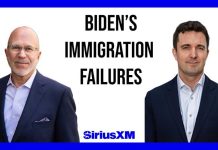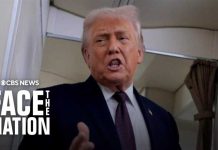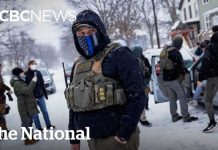
In a striking moment of media conflict, Vice President JD Vance clashed with George Stephanopoulos over a debunked bribe allegation, highlighting the ongoing struggle for truthful narratives.
Story Highlights
- Vice President JD Vance confronts George Stephanopoulos on live TV over a debunked bribe allegation.
- The confrontation underscores tensions between media narratives and political accountability.
- The incident occurred amidst a government shutdown, adding to political polarization.
- Vance’s forceful rebuttal led to an abrupt end of the interview, sparking public debate.
Vance Challenges Media Allegations on Live TV
On October 12, 2025, during a live broadcast of ABC’s “This Week,” Vice President JD Vance took a stand against host George Stephanopoulos. The confrontation centered around a $50,000 bribe allegation against White House Border Czar Tom Homan. Vance rejected the narrative, calling it a “debunked hoax” and accusing Stephanopoulos of pushing a partisan agenda.
The allegation against Homan, first reported in 2024, was dismissed by multiple investigations for lacking credible evidence. Despite this, Stephanopoulos raised the issue, provoking a strong response from Vance. The Vice President’s rebuttal led Stephanopoulos to cut the interview short, ending it abruptly.
Political Climate Intensifies Media Scrutiny
The confrontation between Vance and Stephanopoulos occurred during a heated period of political tension, exacerbated by a government shutdown. The shutdown stemmed from disputes over healthcare legislation and spending cuts, further polarizing the political landscape. Vance’s defense of the administration was not just a rebuttal of media bias but a reflection of the administration’s broader effort to maintain its integrity amid partisan attacks.
Critics argue that the media’s insistence on revisiting discredited claims undermines trust in journalism. Vance’s actions represent a defense of conservative values, emphasizing the need for accountability and truthfulness in media narratives, especially when such narratives attack the credibility of public officials without evidence.
Broader Implications for Media and Politics
The incident has sparked a broader discussion about the role of media in shaping public perception. While some view Vance’s response as an essential pushback against media overreach, others see it as deflection from answering tough questions. The debate highlights the ongoing struggle between political figures and media outlets over controlling the narrative.
As the situation develops, it underscores the importance of fact-checking and journalistic integrity. The public’s trust in both media and political institutions is at stake, as these confrontations become more frequent and charged. The episode serves as a reminder of the need for responsible reporting and the dangers posed by unsubstantiated allegations.
Sources:

















![Congresswoman Assaulted — What Was In That Syringe? WATCH MOMENT: Ilhan Omar rushed and "sprayed" [GRAPHIC]](https://www.unitedvoice.com/wp-content/uploads/sites/3/2026/01/WATCH-MOMENT-Ilhan-Omar-rushed-and-sprayed-GRAPHIC--100x70.jpeg)